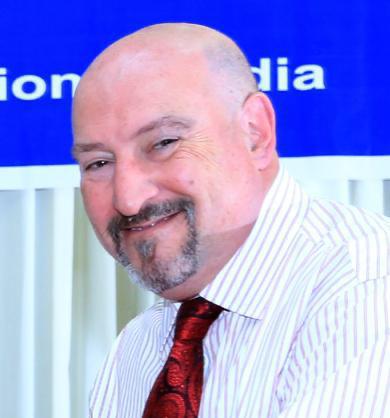
Tony Morris 3.10.1950 – 25.5.2025
Professor Tony Morris
Distinguished Scholar, Mentor, and Pioneer in Sport and Exercise Psychology
(3.10.1950 – 25.5.2025)
Professor Tony Morris was a globally respected leader in the field of sport, exercise, and performance psychology. Based at Victoria University in Melbourne, Australia, he played a pivotal role in shaping the scientific and applied foundations of the discipline, both in Australia and internationally. With a career spanning more than four decades, his work significantly advanced our understanding of how psychological processes such as imagery, motivation, and self-regulation contribute to performance, well-being, and personal development.
Born in Leeds, England, he earned his PhD in Education with a specialization in Psychology and began his academic career in the United Kingdom, where he developed an early focus on motor learning and sport psychology. After relocating to Australia, he became a foundational figure in the development of sport and exercise psychology as a discipline, particularly within the Asia-Pacific region.
Professor Morris’s academic contributions were instrumental in shaping the intellectual foundations of sport and exercise psychology. With hundreds of peer-reviewed articles, book chapters, edited and authored books, conference presentations, as well as invited and keynote talks around the world, Prof. Morris’s research advanced key theoretical constructs and methodological approaches that continue to inform scholarly inquiry across the field. Through a sustained program of conceptual and empirical work, he helped to deepen understanding of psychological processes in performance and health contexts. His primary areas of research interest include the application of psychological skills and techniques across all aspects of sport and physical activity and the involvement of physical activity in the prevention and treatment of illness, especially in chronic illness and disability. His work deepened the scientific understanding of how psychological skills and techniques can be applied across a wide range of physical activity contexts, including high-performance sport, rehabilitation, and chronic illness management. His influence is evident in the work of countless researchers whose studies build upon the frameworks he helped establish, making his scholarship a cornerstone of the discipline’s continued development. In addition to his scholarly work, Prof. Morris also worked with athletes and teams at a range of levels, including international performers.
Equally impactful was his role as a mentor and educator. Professor Morris was deeply committed to the development of students and early career professionals, many of whom have gone on to hold influential roles in academia, sport organizations, and health services. Known for his intellectual generosity and collegial spirit, he fostered a culture of reflective, ethical, and engaged practice that lives on in the work of those he supported. In this spirit, Prof. Morris was also an incredible contributor to the professionalization and internationalization of the field.
Professor Morris played a central role in shaping professional structures within sport psychology. In the UK, he helped form the British Association of Sports Sciences (BASS, then BASES and now CASES) and was its second Honorary Secretary. He led the development of the Australian College of Sport Psychologists and was its inaugural chair. He has been a member of the Managing Council of the Asian South Pacific Association of Sport Psychology (ASPASP) since 1995, was Secretary General from 1996 to 1998, and has been President of ASPASP from 1998 to 2011. He was a member of the Managing Council of the International Society of Sport Psychology (ISSP) from 1997 to 2005, being its treasurer between 2001-2004. Prof. Morris as was Chair of the Organizing Committee for the 11th ISSP World Congress of Sport Psychology.
Professor Tony Morris’s legacy lies not only in his contributions to knowledge, but in the global community of scholars and practitioners he inspired. His work has left an enduring imprint on the field of sport and exercise psychology—one that continues to guide its evolution and affirm its relevance in today’s complex performance landscapes.

